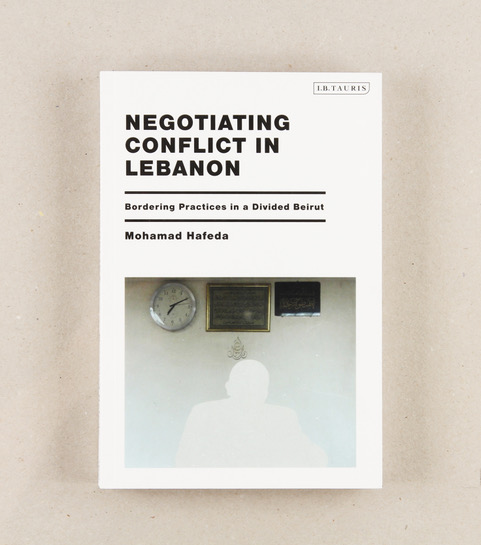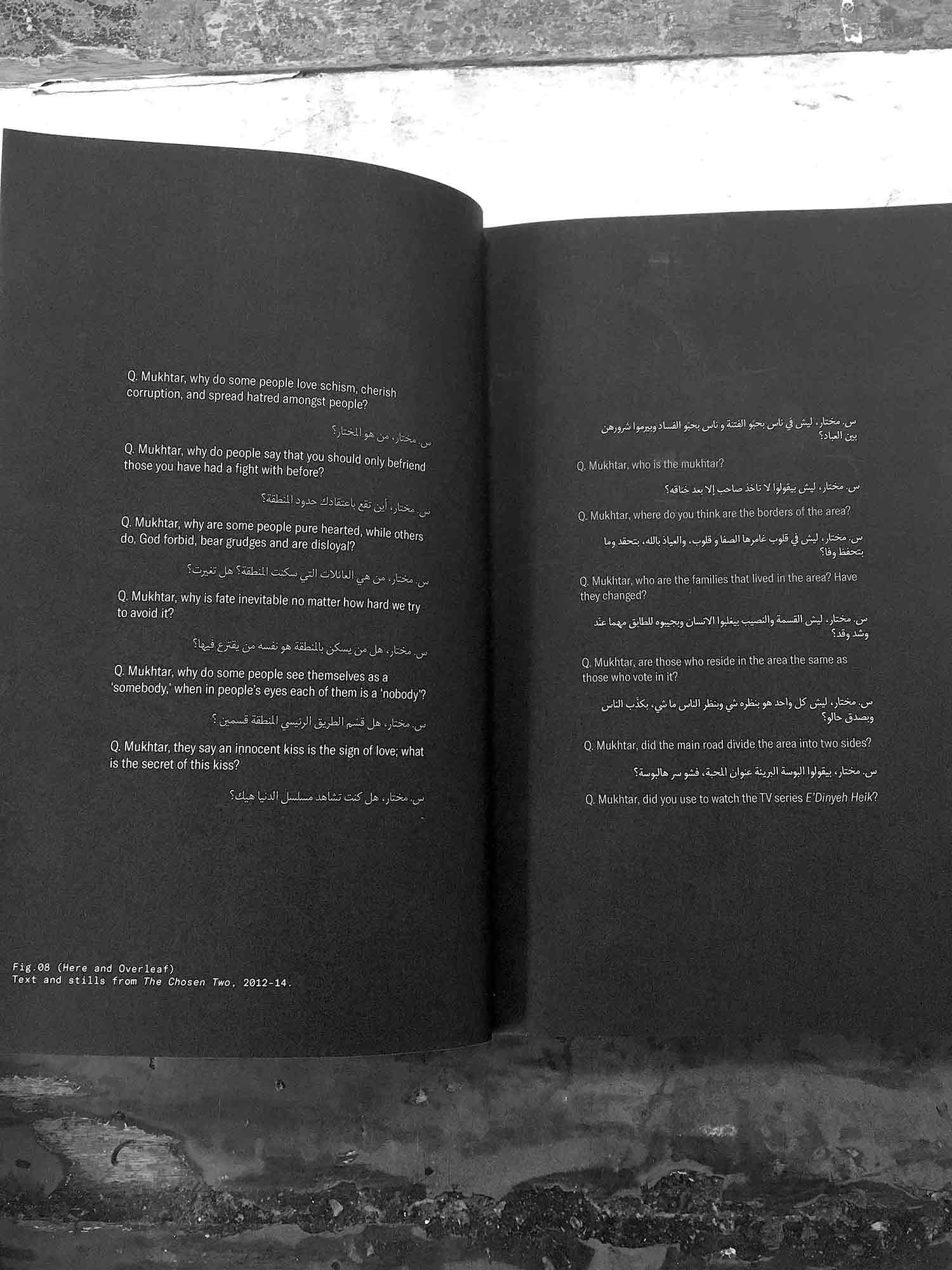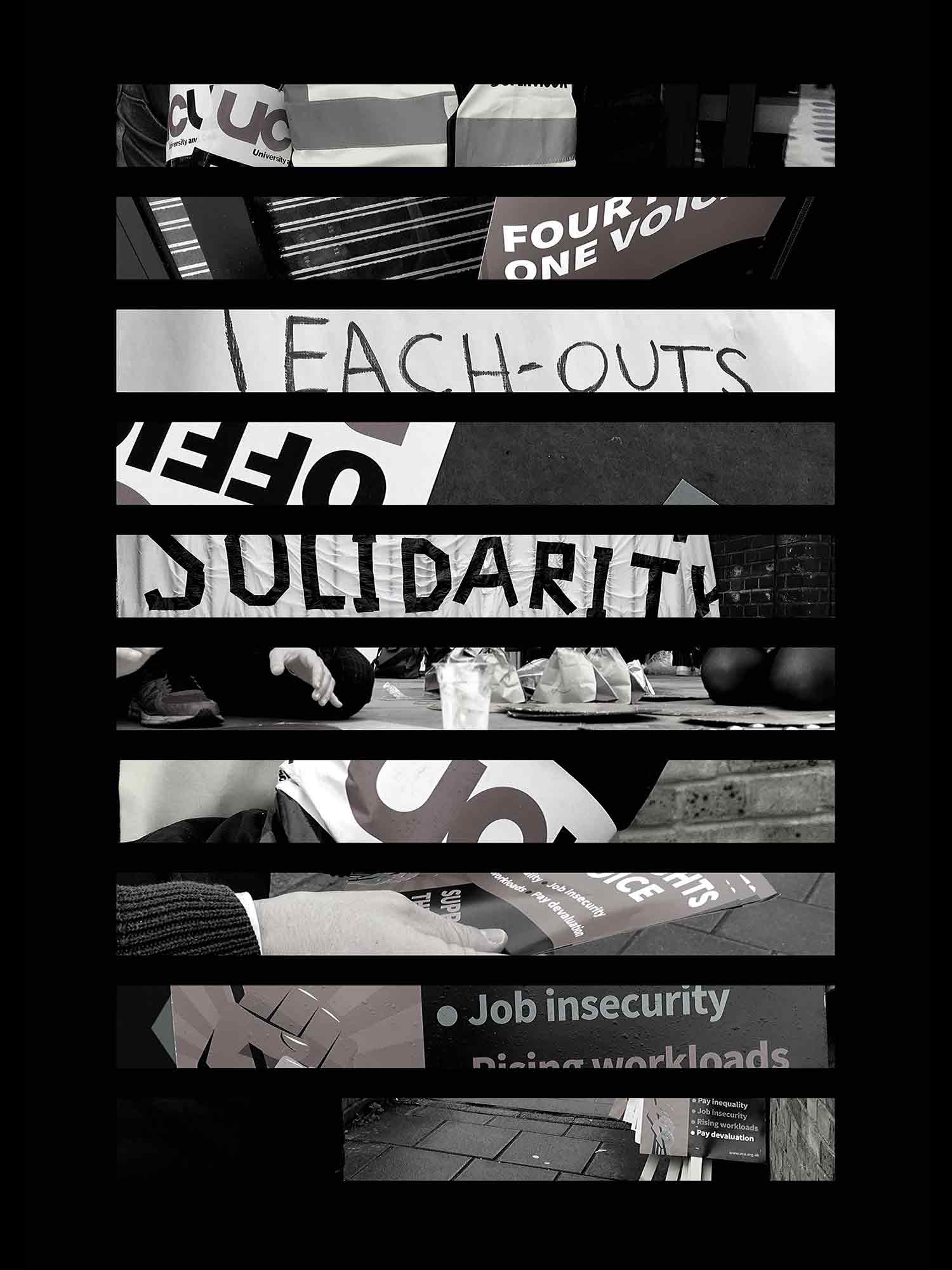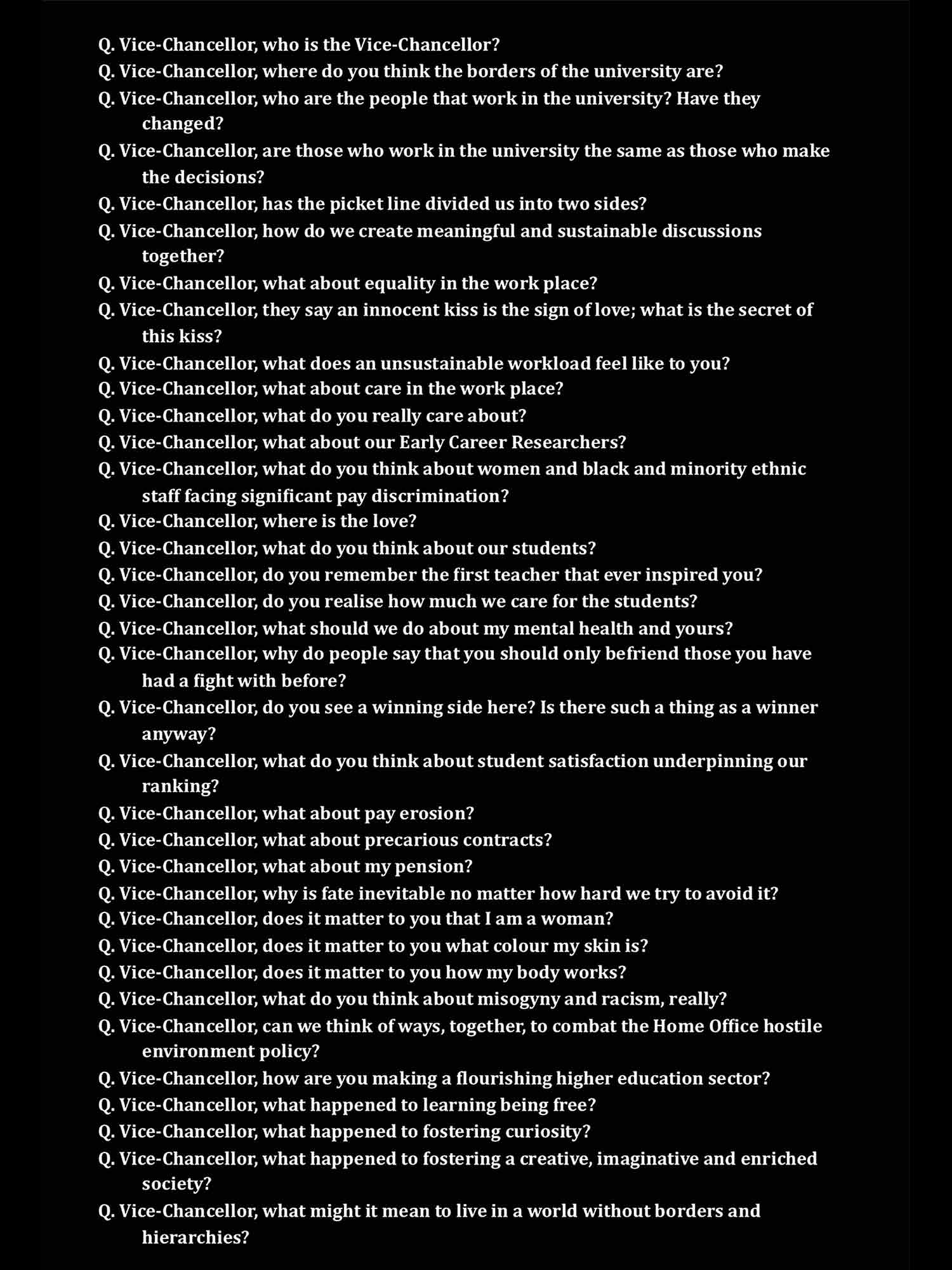
Negotiating Conflict in Lebanon: Bordering Practices in a Divided Beirut by Mohamad Hafeda
Writer’s Abstract
Negotiating Conflict in Lebanon: Bordering Practices in a Divided Beirut investigates the immateriality, spatiality and temporality of the bordering practices of political and sectarian conflict. The book is a practice-led research project that employs art processes including interviews, documentations and media representations to work with residents and negotiate the border conditions of: administration, surveillance, sound and displacement. It proposes a method of negotiating; one that considers how artistic research can itself be considered a form of a critical spatial practice and, in particular, a bordering practice – what the book terms critical bordering practice. This enables the rethinking of border positions including those between disciplines and spatial conditions, and eventually the transformation of certain borders particularly the divisive position of political and sectarian narratives.
~
Writer’s Abstract
In The Creative Critic: Writing As/About Practice, we wanted to present some of the different ways that practitioner-researchers have found to discuss and analyse their work without losing the creative drive that inspired them in the first place. We gathered together the writings of a lot of people who have inspired us over the years to celebrate the range of possibilities available when writing about your own work and/or work that you are drawn to. The book urges the reader to re-think the conventions of the scholarly output and argues that critical writing be understood as an integral part of the artistic process, and even as artwork in its own right.
~
Writer’s Biography
I/Mohamad Hafeda am/is a Lebanese practitioner-researcher (all other bios include all or a combination of: artist, designer, writer and academic) who has lived and worked in London since September 2009.* He (voluntarily) displaced himself to pursue a PhD in Architectural Design intended to define his art practice and as a self-development project. It was also his tactic to step out from the resurfaced political unrest in Beirut in 2005 while still engaging with the conflict through a bordering practice of artistic research. Previously he taught design and worked in commercial design offices in Beirut. Between these employments and in the time left over he initiated ‘socially engaged, participatory, practice-led, art and design’ research projects in Palestinian refugee camps (with his friend Reem Charif) that form the core of his practice today and his ‘research outputs’. His projects engage with local communities and address issues of borders, spatial rights, injustice, participation and representation. Currently he is planning a new bordering practice in the UK that negotiates the temporalities of displacement and the resettlement processes.**
* Where he also found love.
** While planning for his own ‘trans-national’ wedding party in a global time of flooding, economic crisis, virus outbreak and border control. ***
*** As from 15th March 2020 both projects have been postponed until further notice due to Covid-19.
Writer’s Biographies
Katja Hilevaara and Emily Orley are both artists, researchers and teachers who often collaborate to make work that includes performance, installations and writing. Together, they continue to be drawn to ideas surrounding memory and mis-memory, dialogue, place, maintenance, care and enchantment. While Hilevaara lectures at Goldsmiths University of London, Orley works at the University of Roehampton. You can find out more about their individual and joint practices on their respective websites: www.katjahilevaara.com and www.emilyorley.com.



Mohamad Hafeda, Besideness, 2020
Reader’s Abstract
In Negotiating Conflict in Lebanon: Bordering Practices in a Divided Beirut, Mohamad Hafeda introduces four bodies of work that he made between 2009 and 2013 in response to the city, in particular the Mazraa district. Each body of work employs a different creative practice for negotiating the many forms of borders that the citizens of Beirut face every day, whether these are suggested and enforced through administration, surveillance, sound or physical displacement. The book presents a beautiful, considered and delicate dance around and between the political-sectarian conflict that pervades the city and proposes ways to quietly subvert its multiple and un-ending, but always shifting, boundaries through observation and artistic transformation.
~
Reader’s Abstract
How do we write (about) our own practice? What is the relationship between ‘practice’ and the critical and creative forms of writing produced out of it? How can this type of writing as a critical enquiry be measured and assessed? These are the questions posed by The Creative Critic: Writing as/about Practice as it folds and unfolds the spatial and temporal distances and relationships between writers, their texts and the materials (artworks) that instigate their writing, as well as the positions writer-practitioners assume in this process. One of these positions is of ‘writing-beside’ the artwork that the editors propose to describe writing as an attentive encounter and engagement with practice. Collectively with the 38 contributors of this volume, Katja Hilevaara and Emily Orley perform a multiplicity of critical-writing-as-practice that are acts of resistance against disciplinary, institutional and social hierarchies and conventions around their subjects.
~
Reader’s Biography
In the last year, between us (and not always in agreement), we have read, sometimes re-read, and loved (in alphabetical order): Raymond Antrobus’ The Perseverance, Jessie Burton’s The Miniaturist, Ashon Crawley’s Blackpentecostal Breath, Jennifer Doyle’s Hold It Against Me, Lucy Ellmann’s Ducks, Newburyport, Ross Gay’s The Book of Delights , Laura Harris’s Experiments in Exile, Tove Jansson’s Moominland Midwinter, Ursula Le Guin’s Earthsea Cycle Series, Jennifer Nash’s Black Feminism Reimagined, Yoko Ono’s Grapefruit, Phillip Pullman’s The Secret Commonwealth, Sally Rooney’s Normal People, Ali Smith’s Spring, Phil Smith’s Guidebook for an Armchair Pilgrimage, and Elizabeth Strout’s My Name Is Lucy Barton.
~
Reader’s Biography
For the last couple of years I (Mohamad Hafeda) have been reading texts around time and waiting, exploring the specificity of the temporal in situations of displacement, when spatial references are lost, denied or threatened. I have also been thinking of the temporality of art practices, participatory processes and forms of representation and what they could offer in responding to current struggles over space and time. Many of the writer-practitioners in The Creative Critic talk about the temporal dimension of both writing and reading; for example the associations made between (textual) materials that could be linear, simultaneous, disjointed … More interestingly they explore care, listening, slowness and other attributes that are also temporal and offer alternative ethical practices.
~
About Issue 2
Reading Writing Quarterly celebrates reading and writing as situated practices, releasing a special pair of seasonal reviews four times a year.
Each solstice and equinox I invite writers to swap recently completed written works and to provide a situated ‘review’ of each other’s book. These acts of exchange open up ways of ‘reading writing’ differently, exploring the practice of ‘re-viewing’ from a situated perspective, generating spatial ways of reading and writing the genre and texture of the ‘critical review essay’ together, creating something far more entangled.
In these unsettled and unsettling times, 21 March 2020 sees the release of Besides, the second episode of Reading Writing Quarterly, where Katja Hilevaara and Emily Orley read Mohamad Hafeda’s Negotiating Conflict in Lebanon: Bordering Practices in a Divided Beirut, (2019) and Mohamad Hafeda reads The Creative Critic: Writing As/About Practice, (2018), edited by Katja Hilevaara and Emily Orley.
Already in their responses we can see the impact of our current situation – of university strikes in the UK and the impact of COVID19 globally – on reading and writing activities, as well as in the new contributions to Critical Spatial Practice, from Kuba Szreder, Apolonija Šušteršič, and Tyler Rai and Hungry Mothers; and to Site-Writing, from William Jamieson.
Take care (of) everyone – of (y)ourselves and all (y)our loved and vulnerable ones!
If you would have a written work that you’ve recently completed and/or someone else’s work that you’d like to read, please get in touch – j.rendell@ucl.ac.uk












